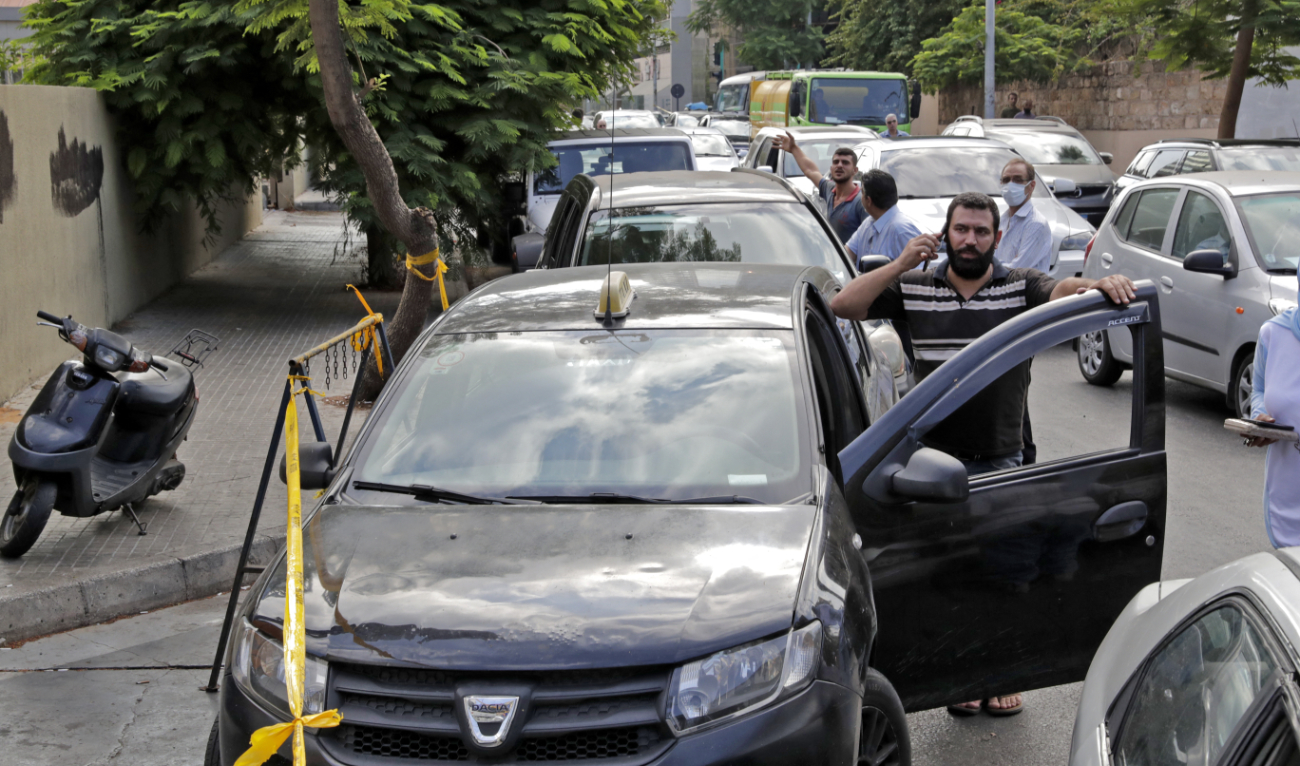BEIRUT: Raids carried out by Lebanon security forces discovered millions of liters of subsidized fuel hidden in underground tanks to be sold later on the black market at new prices. Some of the tanks were merely covered by sand.
“Monopolized” medicine and baby formula were seized, too.
News of the hoarding has only added to the anger of Lebanese citizens, who have been suffering through exhausting fuel and medicine shortages for months. Long queues outside gas stations and empty shelves at pharmacies are common across the country.
The largest quantities of hidden subsidized fuel were found in Hawsh Al-Omara in Zahle, Bekaa, where more than 1.5 million liters of gasoline were seized.
Scenes of Caretaker Health Minister Hamad Hassan raiding depots in the south of Lebanon and the Shouf area that contained medicine missing from pharmacies have also left citizens fuming.
The depots contained medicine that could treat patients with coronavirus (COVID-19), blood pressure, and respiratory problems. Antibiotics and thousands of infant formulas — all subsidized at the official rate ($1=1,500 LBP) — were also discovered.
“The raids are based on an electronic tracking system of ‘monopolized’ medicine,” Hassan said. “The system is very precise and accurate.”
The raid operation revealed a partnership between Hussein Fneish, brother of Hezbollah minister Mohammed Fneish, and Issam Ahmed Khalifa, of the NewPharm Company in Lebanon.
However, the timing of Hassan’s raids were criticized. Lebanon’s Central Bank has not opened credit lines for imports for three months as laws were put in place to prohibit free imports.
“These security campaigns and raids should have been carried out earlier,” Issam Araji, head of the Health Parliamentary Committee, told Arab News.
“Medicine and fuel should have never been hoarded. Following these raids, Lebanon seemed like a floating city in a sea of gasoline and diesel. The dangerous part is that the fuel was being stored in residential neighborhoods.”
Araji, who is also a cardiologist, said he had warned authorities about the hoarding of medicine for more than a year.
“But they insisted that people were storing the medicine in their houses,” Araji said. “People cannot afford their daily bread, how would they be able to store all of the medicine? I think that the health minister has finally decided to take action because he received information about companies hiding and storing the medicine. These campaigns will all be in vain unless offenders are punished to deter others.”
Although the country has started to unload ships of imported fuel and distribute it to gas stations, queues outside the filling stations did not get any shorter on Wednesday. Most drivers parked throughout the night and slept in their cars, hoping to fill up their vehicles in the morning.
Adnan Naccouzi, 69, suffered a stroke while waiting in a long queue for gas in the hot weather and without drinking water. He has been recovering inside the intensive care unit at a Beirut hospital for the past 24 hours.
Authorities have said fuel will be sold according to new prices, amid a gradual reduction of fuel subsidies.
As of Wednesday, a 20-liter canister of gasoline was sold for 133,000 Lebanese pounds ($88) and the same canister of diesel for 99,000 pounds. The cost of transportation has automatically increased, where the fare rose to 20,000 pounds for each passenger; more than double the price of the previous day.
Despite the public calls to arrest monopolists and put them in prison, hoarding is classified by the Lebanese penal code as a misdemeanor and sanctioned either by a fine or up to six months in prison.
Meanwhile, Judge Ghada Aoun issued a search and investigation warrant against Lebanon’s Central Bank Gov. Riad Salameh. This comes five days after setting a date for an investigation session — that he did not attend — over accusations of money laundering and money transfers abroad.
Lebanon’s State Prosecutor Ghassan Oueidat in April dismissed Judge Aoun from the case. But she has insisted on proceeding with her investigations and broke into a money exchange company with the help of activists from the Free Patriotic Movement.
In other developments, the country’s caretaker premier Hassan Diab will not appear before Judge Tarek Bitar, who is investigating last year’s Beirut blast. Diab was supposed to be questioned as a defendant in the case on Thursday, but has insisted that he should be questioned by the Supreme Council for the Trial of Presidents and Ministers.
Judge Fadi Sawan, the investigating judge who preceded Bitar, listened to Diab’s testimony in his capacity as a witness more than a year ago. In that testimony, Diab acknowledged the presence of the ammonium nitrate that was illegally stored at the port and explained why he changed his mind about visiting the site just days before the explosion.




